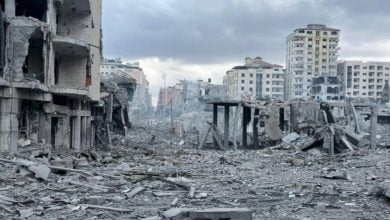Image source: Downtown Reno arch, public domain
On July 14, Reno, Nevada was declared a “yellow zone” by the White House report on COVID-19. Yellow zones are areas where COVID-19 cases are reported between 10 to 100 per 100,000 population and a test positivity of 5 to 10 percent. Currently, there are 1,096 active cases and 64 hospitalizations reported in Washoe county. The active cases are up 96 percent since May and up 57 percent since June. Earlier this month, Nevada had the highest COVID-19 transmission rate in the country. The state has enacted various responses to the pandemic in order to curb the damage to the economy and public health.
The released “Roadmap to Recovery” outlines various restrictions and guidelines that businesses and the public are expected to comply with in order to deal with the COVID-19 pandemic. The plan requires certain businesses and public areas to enforce masks, a 50 percent occupancy or to only operate via curbside pickup. Like many states, Nevada’s unemployment has skyrocketed and on March 29 Nevada enacted an eviction moratorium.
Despite continued increases in COVID-19 cases, the state is now looking to reopen the economy. Casinos have already begun operating again and the eviction moratorium is expected to be lifted on September 1 despite an unemployment rate still higher than most of the country. Estimates of 118,000 to 142,000 households in Nevada are at risk of eviction this upcoming fall according to a report from the Guinn Center. In Reno, roughly 45 percent of home occupants are renters.
While the uprising against racism spreads throughout the country in wake of the killing of George Floyd, the Reno community wrestles with how the local police department treats its Black citizens. In Reno, Black people make up less than 3 percent of the population. However, Black people account for nearly 14 percent of the arrests made by the Reno Police Department. Earlier in January this year, young Miciah Lee was shot and killed by the RPD.
After the death of Miciah Lee, the Black Lives Matter movement local to Reno demanded a release of the bodycam footage from the night of Miciah Lee’s death. After the department had concluded the investigation and the footage was released to YouTube, the District Attorney of Reno declared the shooting justified, sparking a backlash from many members of the community. The community demanded that funds should be diverted away from the police department and into mental health services, as Miciah Lee had been suicidal prior to being killed by police.
Under capitalism, the vast majority of working families struggle to ensure their basic necessities like housing and are instead subjected to a hostile police state. Rather than having a robust and effective medical system that can provide citizens with treatment and safety, “pull yourself up by your bootstraps” economics leaves everyone to fend for themselves in the midst of a pandemic. The capitalist police state treats workers as a ‘horde’ or a ‘mob’ that needs to be disciplined or even culled for the interests of the ruling elite. While workers are struggling for their livelihoods under the pandemic or fighting for their rights to not be slaughtered by the police, people at the top like Jeff Bezos add many more billions to their bank account.
Housing is a right! Stop police terror!






